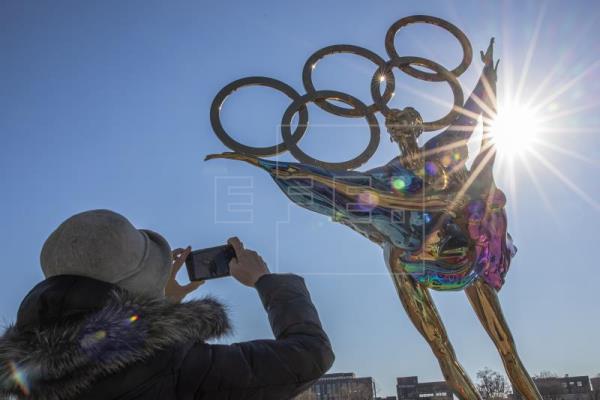Australia says it is planning to join the United States in a diplomatic boycott of the 2022 Winter Olympics in China, a move that risks further deteriorating the already strained relationship between Canberra and Beijing.
Australian Prime Minister Scott Morrison made the announcement at a news conference in Sydney on Wednesday, saying the decision was made over several issues constantly raised by Canberra that China has not responded to, including alleged “human rights abuses” in China’s Xinjiang Province and Beijing’s moves to slow and block imports of Australian goods.
“Australia will not step back from the strong position we’ve had standing up for Australia’s interests, and obviously it is of no surprise that we wouldn’t be sending Australian officials to those Games,” Morrison said while stressing that Australian athletes would still attend the premier global sporting event.
He further accused China of rejecting opportunities to meet with Australian officials to improve relations, insisting that Australia remained open to bilateral talks.
Following the announcement, a spokesperson for China’s Embassy in Canberra said in an online statement that “some Australian politicians” were engaged in “political posturing,” adding that, “The blame for the current predicament of China-Australia relations lies squarely on the Australian side.”
On Monday, the United States said its government officials would boycott the Beijing Olympics, citing alleged Chinese human rights “atrocities” against minority Muslims in Xinjiang. But a full boycott is not expected, meaning that US athletes will still be able to compete in the games.
China warned that the move could imperil bilateral relations.
Chinese Foreign Ministry spokesman Zhao Lijian said at a press conference on Tuesday that the US would “pay a price for its mistaken acts,” and warned of “resolute countermeasures” in response. He also accused the US of violating “political neutrality in sport” and said the proposed boycott was “based on lies and rumors.”
Relations between the world’s two biggest economies have been strained over a range of issues from trade to security to the COVID-19 pandemic. Although US President Joe Biden and his Chinese counterpart, Xi Jinping, held a virtual summit last month, it produced no significant breakthroughs.
READ ALSO: Bin Zayed invites the President of Israel to visit the UAE
The Beijing 2022 Winter Olympics are scheduled to take place from February 4 to 20, 2022, followed by the Paralympics from March 4 to 13. The last time the US fully boycotted the Olympics was in 1980 when former President Jimmy Carter was in office.
Some other countries, including the UK, Canada, and Japan, are also weighing their options over participation in the global sports event.
On Tuesday, New Zealand’s deputy prime minister, Grant Robertson, confirmed the country would not send diplomatic representatives at a ministerial level. Robertson cited COVID-19 as the main reason.
Last week, Lithuania, which is engaged in trade and diplomatic conflicts with China over its growing relationship with self-governed Chinese Taipei, announced that neither its president nor ministers would attend the Games.













